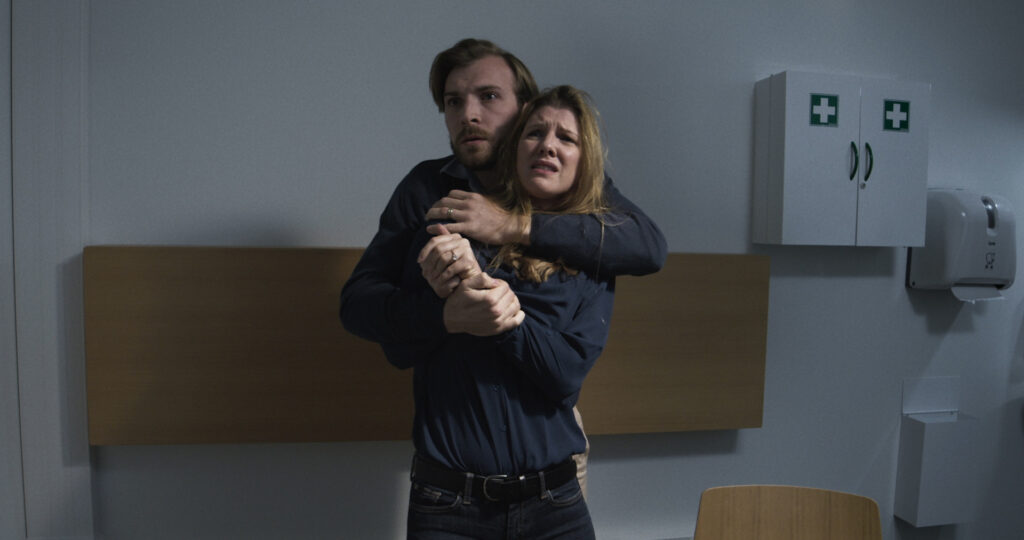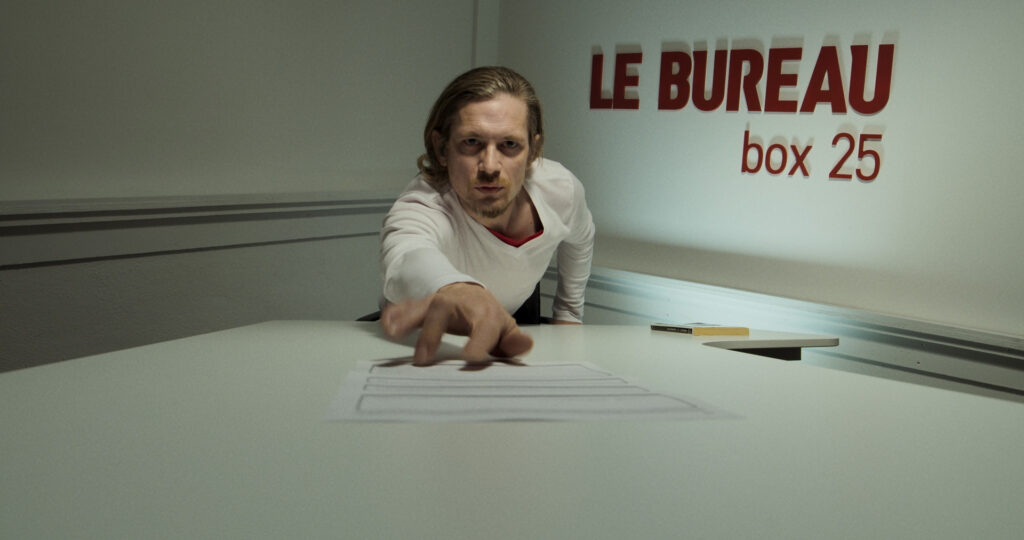The Bureau is an unapologetically blunt bit of speculative fiction. It perceives a cold, clean, and bitterly analytical dystopia where all decisions feel more utilitarian than human. Every decision you make is overseen by a giant system that decides your entire life based on the decisions you make. If you’re not making enough money, you can’t have kids. If you’re too obese, you can’t have access to certain liberties. It’s a chilling prospect that is treated with all the gloss and notification buzzes that accompany any blind faith in technology.
The Bureau is established as a government center of sorts that handles all aspects of your life as well as fielding complaints. Visiting the Bureau to speak about an issue regarding his family is a concerned father. His problem is regarding the limit on how many children he is allowed to have, as apparently two is now seen as too much. But inorder to get that answer, he needs to jump through a few hoops. He visits the information room of Box 01 but is then redirected to another office. He keeps jumping from office to office until he eventually learns the truth: he doesn’t make enough money and isn’t deemed healthy enough to have two kids, forcing him to decide which one he wants to give up to the state. If he fails to comply, his future could be ruined.
The minimalist atmosphere of Bureau works well for making sure this tale never gets lost in its own weeds. We get a sense early on of how easily the Bureau manipulates the public by framing anyone who condemns their decisions as an “administration-phobe.” Various advertisements break up the many meetings, showcasing either the benefits of the Bureau or recycled clothing vendors that are Bureau approved. We also gain a sense of the manipulation involved the way every worker touches their earpiece for instructions while receiving a familiar notification alert.
As with the best of speculative fiction, this film takes a lot of inspiration that becomes rather eerie. The most prominent is the notification reminder that constantly informs the many workers of the bureau. It’s a dinging chirp that is no doubt still present on some of our phones. We keep hearing this sound throughout the film and it instantly triggers something in our brain. Did I get a text? Is somebody contacting me? Is there something I must be informed about? It’d be amazing to watch this film with a crowd and see how many of them instinctively reach for their phones when such sound effects grace the soundtrack.
This film actually goes further than one might expect in how it peels back the layers of what makes the bureau so sterile and calculated. The father is revealed to have an algorithm that can make accurate predictions for the future in any scenario. He is given a preview of what his life will be like if he can’t pass a certain amount of tests and certifications to qualify for his children and the results are not good. However, when he takes a peek at what would happen if he exited the relationship and worked outside of the system, life turns out to be much better for his wife and kids. The kids go onto healthy lives and his wife will remarry and die at the age of 102. It’s such a chilling look at life and how such painful sacrifice is reasoned for the greater good.
The Bureau features a surprising amount of strong world building in its limited timeframe that engages with so little, coming off as a robust episode of The Twilight Zone. The allegories are obvious and the messaging very much on the nose but this only works to the benefit of a short with such crisp editing and brilliant production design. Most films would only focus on the setting and despair and call it a day. The Bureau actually has the strengths in its storytelling to explore a little bit more of that totalitarian state once populated by young-adult cinema of the 2010s.








